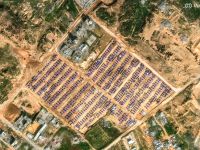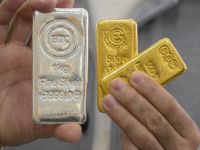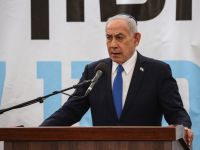Albawaba.com - Amman
Ori Ginat is a 25-year-old student activist from Tel Aviv who works on behalf of several political and social initiatives. He and a core group of 20 other activists organized what they called the Black March during Israel’s gay and lesbian pride festivities on June 22 in Tel Aviv.
Carrying signs proclaiming “No Pride in Occupation,” some 250 marchers, both Israelis and Arabs, protested Israel’s 34-year military occupation of Palestinian land. They also stressed the need to end the persecution of gays and lesbians in the Arab World, presenting human rights as the right of all people, in all places. News and photos of the march reached communities as far away as San Francisco in the US.
Ginat spoke with Albawaba.com about how the march came about, and how people – gay, lesbian and straight – responded:
Q. How did this year's gay pride festivities differ from previous years?
A. This year’s pride was totally different because of the Black March: for the first time, many people within the gay community in Israel decided to emphasize human rights violations in the Occupied Territories.
Q. What prompted people to show their opposition to the military occupation of the Palestinian territories? In what ways, if any, did gay and lesbian thinking about and experiences with oppression have to do with this opposition?
A. What prompted people to show their opposition to the military occupation of the Palestinian territories is the terrible situation there since the beginning of the Intifada a couple of months ago.
Some gay people say that it’s impossible to talk only about human and civil rights for gays while ignoring the plight of the Palestinians.
Q. How mixed, in terms of Israeli and Arab Israeli people, was the group that planned the action and the group that came out to march?
A. To our surprise the group was mixed enough. Israelis and Arab Israelis came together for this purpose.
For the Arab Israelis it was a first too, considering the total lack of acceptance of the gay way of life in the Palestinian territories and in the Arab World in general. Up until then, they couldn’t participate in gay events in Israel because of the political problem. Now, when we joined forces, they could march with us as gays and lesbians.
We know that [news of the march] was published all over the Arab World. For them it’s the same message: you demand human rights for Palestinians, but you don’t give human rights to your own people: gay and lesbian Arabs.
Just look at the recent news from Egypt, Lebanon, Morocco, etc. All those vicious attacks on gay people, and arrests. It must be stopped.
Q. What reactions, positive and negative, did you get from other members of the gay community?
A. Many reactions were quite negative. People said, “We have one day during the year that is a holiday for gay people, so why are we spoiling it?”
But many people realized the importance of this “black” march and joined in our message that there is no pride in the occupation.
Q. What reactions did you get from onlookers?
Most of the people were mildly hostile. But many cheered and welcomed our gay Palestinians friends and us.
Q. Do you think that Israel's gays and lesbians are generally more or less informed than the average person in Israel?
Israel’s gays are no different than other Israelis. They are quite informed, but they tend to see the conflict from a very one-sided perspective.
© 2001 Al Bawaba (www.albawaba.com)







